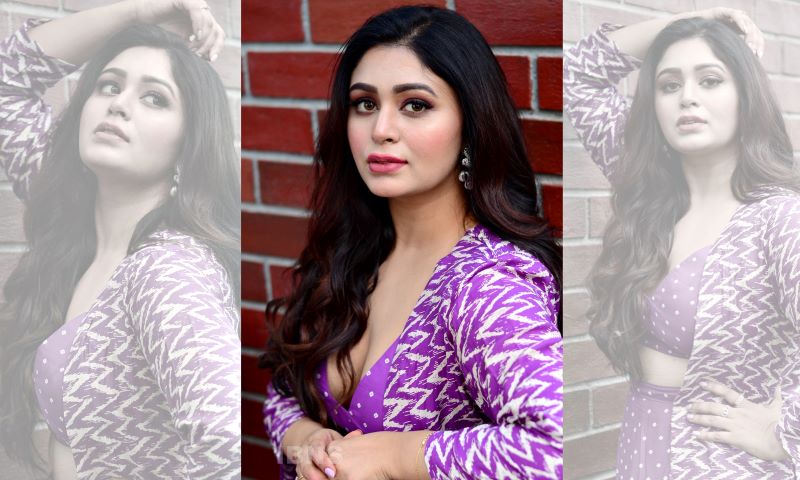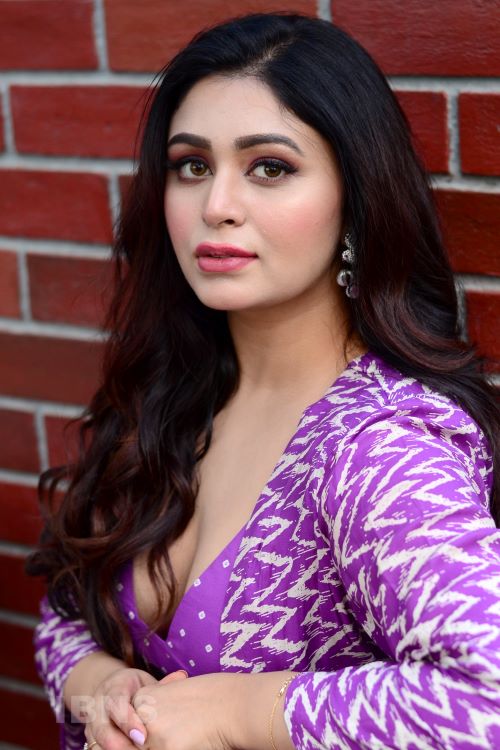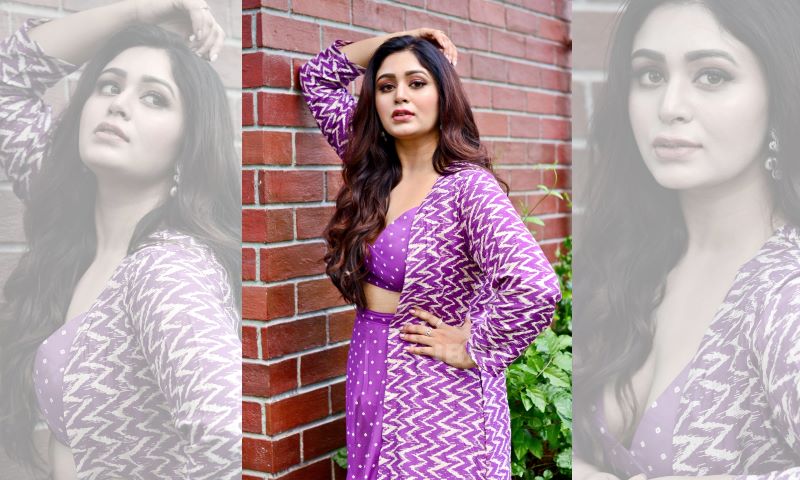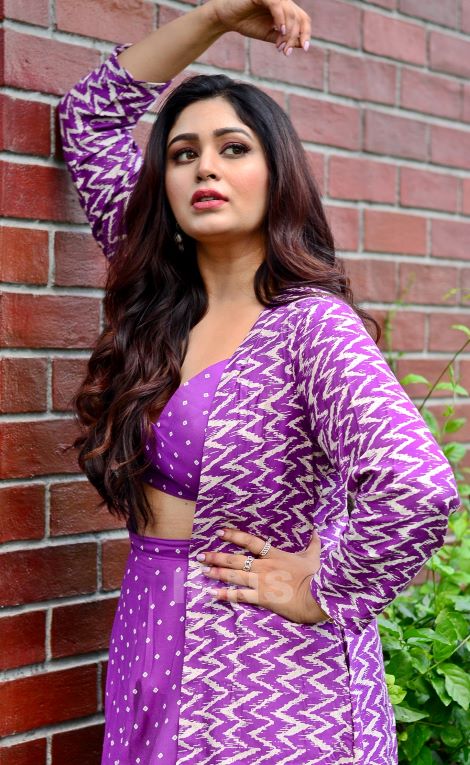
Fatafati: Beauty has no rigid definition, says Ritabhari Chakraborty
After Brahma Janen Gopon Kommoti, actor Ritabhari Chakraborty teamed up with filmmaker Aritra Mukherjee for Bengali film Fatafati, which deals with the issue of body shaming which women face in daily lives. In an interaction with IBNS correspondent Souvik Ghosh, Ritabhari, who is credited to a considerable number of films across languages over the years, speaks candidly on the issue, her personal struggles, growth and more...
Excerpts
Q. Does working for films like Naked, Brahma Janen Gopon Kommoti or Fatafati become more personal considering their issues?
A. I think every film which I do is somewhere personal to me. As an actor and an artiste, being observant is one of the most important keys of who we are. The trolling issue which was shown in Naked was something which I had faced in my life.
The challenges which women face shown in Naked or Brahma Janen Gopon Kommoti or Fatafati somewhere are relatable but not congruent because Phullora (Phullora Bhaduri, Ritabhari's character in Fatafati), who is body shamed since early years, can’t have the same confidence which I have in real life. To be honest, I have been raised very independently by my mother. But it is also true that every woman’s life story somewhere meets at a point.
 Photography: Avishek Mitra/IBNS
Photography: Avishek Mitra/IBNS
Q. How was your mental makeup while you underwent the physical transformations for the character?
A. I had gained weight by five to six kilos due to surgery. Moreover, I had to put on another 19 kilos for the film. I was looking at it as a project. I was sure that the issue of the film must be talked about. Until the time the film was announced, I couldn’t break silence on it so people went at length to discuss my weight gain, give a condescending look at and judge me. My weight suddenly became everyone’s concern, which was kind of funny and surprising (laughs). I appreciate genuine concerns though. I became more sure of doing this film after I received the condescending remarks for gaining weight.
Q. Do you think celebrities feel the extra pressure of being in shape?
A. We are in the visual medium so keeping groomed and presentable is a part of our business. Now the definition of grooming and presentation can vary from person to person. My point is there is no need to define a certain definition of look as beauty. Every individual is different and beautiful in their own way.
Q. Phullora’s gradual growth and transformation somewhat makes the character relatable as well. Isn't it?
A. It is impossible for a woman like Phullora, who has been body shamed since childhood, to be super confident. We have to realise that certain scripts or stories are bigger than the actor or the person so the subject of the film is more important than Ritabhari’s transformation. I hope the subject at least triggers a conversation or a debate or a discussion.
 Photography: Avishek Mitra/IBNS
Photography: Avishek Mitra/IBNS
Q. We often tend to misjudge body shaming as a humour in daily lives as well.
A. We have to realise the difference between humour and an insult. I should make it clear that concern for someone’s health is not an insult or body shaming. But it turns out to be an insult when it degrades someone. Mocking someone is an absolute insult.
Q. You have huge followers on social media. How do you view the platform?
A. Everything has its pros and cons. Social media gives us power to send a message across but also increased yellow journalism. Every other day, I find one or the other fake stories about me online. I am tired of it now. A filter is needed at some point on social media. At this point, I feel social media is a huge power.
Q. You have talked about your surgery and recovery openly. How much has the phase impacted you both personally and professionally?
A. A lot, a lot. I felt like a different person not just due to the physical transformation but the relationship with myself has changed a lot. I have realised that it is impossible to make everyone happy. Now I just ensure I don't hurt anyone. I feel like a more independent person for being bare with my personality. Though I was always outspoken, I feel like losing all my filters in recent times (laughs).
 Photography: Avishek Mitra/IBNS
Photography: Avishek Mitra/IBNS
Q. Is Ritabhari Chakraborty going through the best phase of her life?
A. Yes (smiles). Since I grew up without a father, my mother Satarupa Sanyal played the roles of both my parents strongly and beautifully. But during my therapy sessions, it was found that the male absence in my life had created a void and a bit of insecurity in me. Giving all due credits to mothers, it can’t be denied that fathers play a role in a child’s life. It is a biological need. Whenever I tried to analyse the reason for my heartbreaks and breakups, I realised that looking for a father figure in people is not healthy.
Despite being raised so independently by my mother, I craved for a certain shelter and bonding which lead to a certain expectation. So when I hit rock bottom with all kinds of upsets both physically and mentally, I realised the importance of self love. I have been hard on myself in the past. But now my relationship with myself has changed. It has come to a certain peace. It’s beautiful to date oneself. Most importantly, I am happier than ever.
(Photography: Avishek Mitra/IBNS)
Support Our Journalism
We cannot do without you.. your contribution supports unbiased journalism
IBNS is not driven by any ism- not wokeism, not racism, not skewed secularism, not hyper right-wing or left liberal ideals, nor by any hardline religious beliefs or hyper nationalism. We want to serve you good old objective news, as they are. We do not judge or preach. We let people decide for themselves. We only try to present factual and well-sourced news.





